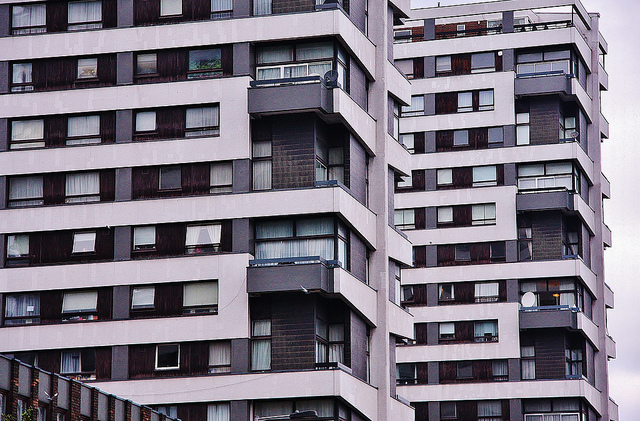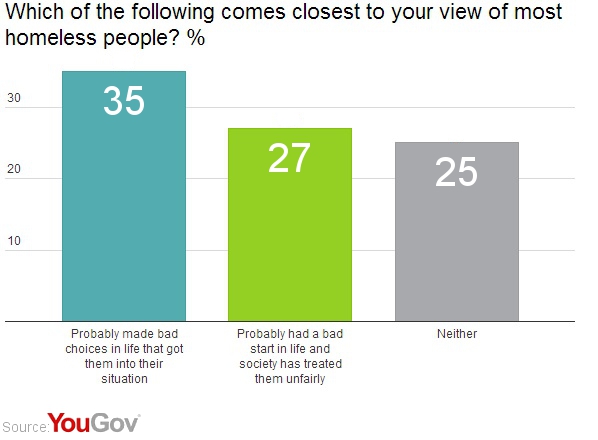 Affordable housing is one of the most pressing issues of our time and it’s gaining political traction across the UK in the lead up to the 2015 General Election. From the South of England to London to the North, rents are going up, people are being priced out and new builds are failing to provide a sufficient amount of affordable housing.
Affordable housing is one of the most pressing issues of our time and it’s gaining political traction across the UK in the lead up to the 2015 General Election. From the South of England to London to the North, rents are going up, people are being priced out and new builds are failing to provide a sufficient amount of affordable housing.
But what exactly do people mean when they talk about affordable housing and the ‘housing crisis’?
What is affordable housing?
Affordable housing is also known as social housing. This is is low-rent housing for people who are most in need. It’s usually provided by councils and not-for-profit organisations such as housing associations.
But there isn’t enough social housing to meet demand. This means people are being forced to rent from private landlords. So when people talk about the housing crisis they’re usually talking about a lack of social housing and rising private-sector rents.
So is housing affordable?
Affordable housing was classified as rent set at around 50 per cent of local market rents. This has recently increased to 80 per cent.
Data from the Valuation Office Agency shows that at 80 per cent of market rents, tenants in a three-bed property would have to pay:
- £665 p/week in Westminster
- £376 p/week in Hackney
The average UK salary is £26,500. No wonder Shelter found that rent takes up 59 per cent of an average Londoner’s take-home pay.
Research by the Resolution Foundation found that a “very modest rented home” is unaffordable for low-income households in 33 per cent of local authority areas.
Why is housing unaffordable?
Governments and councils aren’t building enough houses so demand far outstrips supply. Shelter notes that “by 2008, the number of new homes being started had fallen to its lowest peacetime level since 1924 – and house building has barely recovered since then.”
Because of a lack of social housing, people are turning to private landlords. A rise in demand along with a lack of rent control means the cost of renting privately has spiralled.

Why are people struggling to pay their rent?
Research by Shelter found that in 2012-13 the number of people struggling to pay their rent or mortgage increased by 44 per cent to, 7.8 million people.
Living costs are rising but incomes are flatlining. So rising rents are eating into decreasing household budgets.
Changes to welfare benefits are another reason. These have particularly hit low income families and where the new cap on total benefits is exceeded, it is Housing Benefit that gets cut. It’s worth noting that 90 per cent of new claims for housing benefits are from households where at least one adult is working.
https://twitter.com/GuardianHousing/status/522729497829720064
What happens to people struggling to pay their rent?
People are being forced into debt or onto the street.
Research by the charity Money Advice Trust found that rent arrears is the fastest growing debt problem in the UK.
And homelessness is increasing year-on-year, most notably in London. According to the homeless charity Crisis, losing private sector tenancies is now the single largest cause of statutory homelessness in the capital.
Is this just a London problem?
No, the housing crisis is being felt across the UK. But there are regional differences.
In London, for example, buy-to-let rents are double that of the rest of the UK. While research by the Association of Retained Council Housing found that the highest proportion of households in rent arrears because of the ‘Bedroom Tax’ are those in the North of England.
What needs to happen?
Government statistics show that over 1.5million people are on local authorities’ housing waiting lists in England. In London alone this means 800,000 houses need to be built in the next 8 years to meet demand. But new houses need to be affordable for people on low pay. The Resolution Foundation sets this at £7.44 per hour.
When it comes to private-sector rents, a recent YouGov poll revealed public support for rent controls:
What are some of the other solutions being discussed?
Danny Dorling, a professor of human geography at Oxford University, has some interesting ideas about how to tackle the housing crisis. Firstly, he says, the government should improve tenants’ rights.
Stay up-to-date
Finally, here’s a Twitter list to stay up-to-date with the affordable housing debate.


 Research by the
Research by the 